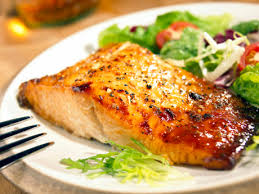Could a proper diet be the cure to ADHD? Perhaps not, but it sure can help. This theory is discussed in length by Doctors Edward Hallowell and John Ratey in their book, Delivered from Distraction (2005). “The most potent medication we have is also our most dangerous and abused drug. It is called food…Food rarely comes up when we talk about the mind and brain, which is a mistake, because what you eat determines how effectively your brain operates. It is such an obvious point that it usually goes overlooked” (p.205).
According to Hallowell and Ratey, the consumption of certain foods can either serve to lessen symptoms of ADHD or make them much worse. While many people have a very basic understanding of what makes up a healthy diet (i.e. ice cream is bad, vegetables are good), it is a subject of which many people are seriously uninformed.
So how do people with ADHD know which foods to avoid and which foods consume? For a start, one of the best thing people with ADHD can do is to avoid foods with high amounts of refined sugar and foods that convert into simple sugar once consumed. While these foods cause an initial burst of energy (the infamous sugar rush), they are quickly followed by a crash which causes fatigue and distractibility. This turns an attention problem into an attention crisis!
While this seems like common sense, it was recently put to the test. “Researchers recruited 100 children with ADHD, and placed 50 of them on a restricted diet, consisting mainly of rice, meat, vegetables, pears, and water, with some children getting a few other foods. The other 50, the control group, received a normal diet. At the end of five weeks, 64 percent of the children on the restricted diet had significant improvement in their ADHD symptoms, while none of the control group had improved” (Newark).
Another step that people with ADHD can do to lessen symptoms is to supplement with essential nutrients that are often missing in the standard American diet. One such supplement is omega – 3 fatty acid. “Current estimates are that the average American eats 125 milligrams of omega – 3 fatty acid per day. This is about 5 percent of what the average American ate a century ago” (Hallowell, Ratey, p.215). This deficiency, while detrimental to everyone’s health, is especially harmful to people with ADHD. Besides being beneficial for heart health, omega-3 fatty acids also increase dopamine levels in the brain. This is the same role the ADHD medications perform. People can increase their intake of omega-3 fatty acids by increasing their intake of fish or supplementing with fish oil or krill oil.
Other nutrients that people with ADHD may want to consider taking include B-vitamins, vitamin C, magnesium, and zinc. If people do supplement with vitamins they should be careful not to create imbalance by taking too much of a single nutrient. If possible, people should have their vitamin levels checked by doctor.
While a proper diet and supplementation may not completely stop symptoms of ADHD, they can certainly lessen symptoms. If poor nutrition is to blame for some symptoms of ADHD and people can lessen symptoms by correcting their diets, people can make their lives much easier and perhaps avoid taking prescription medication altogether. Focus may only be a plate away.
